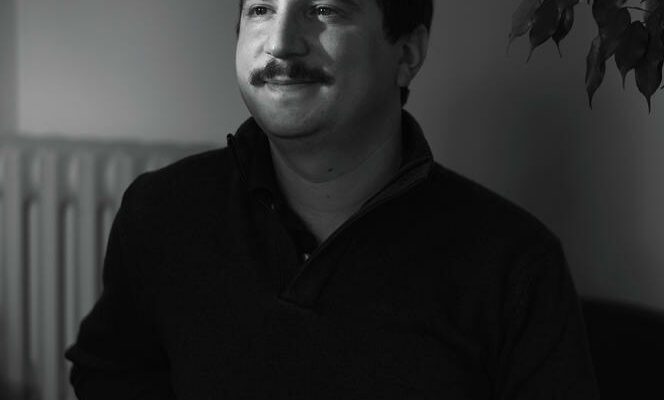If my parents transmitted to me the passion for cooking, I quickly understood that the secret of good dishes was above all to have quality products. I grew up between Paris and Normandy, near Fécamp, where we were lucky enough to be able to find magnificent ingredients, from the sea and the land. We went there on weekends and every holiday, without exception.
“I found it totally unfair that our so-called advanced society does not pay minimum wage to people who toil fifty hours a week to feed us. »
By working alongside producers, breeders, market gardeners, fishermen, I realized that many of them could not make a living from their profession, that in France a third of farmers have an income of less than 350 euros and I found it totally unfair that our so-called advanced society does not pay minimum wage to people who toil fifty hours a week to feed us…
It has always stayed with me. I wanted to understand how we got there. I was a pretty good student, I did long studies, physics and chemistry at Paris-VI, then engineering studies at Centrale Paris and finally a course on innovation at the University of Berkeley, in California. At Centrale, I ate very badly, we got our supplies from the Intermarché, it was horrible. I started bringing back baskets of fresh foodstuffs from Normandy, for my fellow students and myself, it was a hit… But I didn’t feel ready to launch myself into entrepreneurship, I was too afraid of failure.
Association of benefactors
Once in the United States, I had a click: I understood that you had to make mistakes in order to learn and move forward. With two colleagues from my course, we started to brainstorm ideas, including a concept of vegetable baskets, inspired by what was already being done quite a bit in California. Curiously, Americans are much more advanced than us in terms of sustainable food and I have rarely eaten as well as in the land of junk food.
We threw ourselves into the adventure naively: we returned to France and we teamed up (Alexis Parakian, Livio Galas and me, Augustin Renoul a little later), we went to see a producer in the Paris region and we started selling our products from an Excel workbook. We called our company Alancien because it reflects innovation in agroecology, which uses techniques as old as the world and seeds of heirloom varieties.
Today, we offer 3,000 references, directly from 200 organic, agro-ecological and local producers, who are paid decently for their work. I fight for producers, products and nature. And, if I like sauerkraut so much, it’s mainly because it contains lactofermented cabbage. Lactofermentation is agroecology in the kitchen, a way of preserving vegetables in an infinite way, without energy, without inputs, without cost.
Sauerkraut, a dish that is both healthy and delicious, can be prepared with many accompaniments: meat, sausages, fish, seafood, in a vegetarian version… For me, that’s cooking: conviviality, pleasure , but also health, nature, ecology. This is what unites and puts everyone in agreement.
